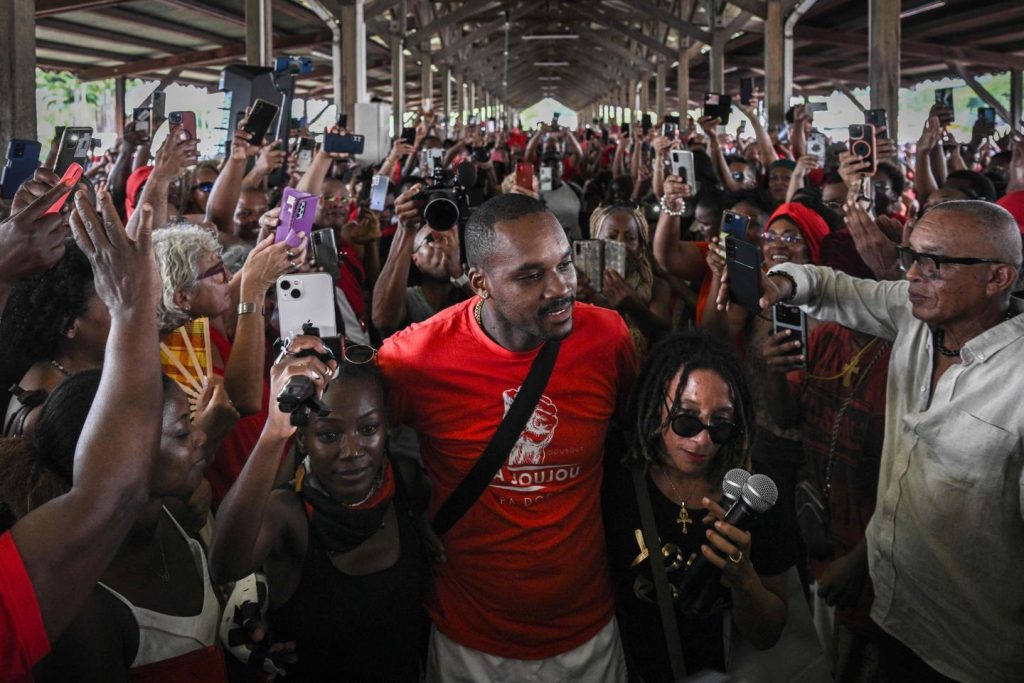Thousands of protesters gathered in Fort-de-France on October 19, 2024, to continue their movement against the high cost of living in Martinique, despite an agreement signed to lower food prices. The State had announced an agreement to lower food prices by an average of 20% in Martinique, following violent protests that had been ongoing since September. However, the agreement was not signed by the Rassemblement pour la protection des peuples et des ressources afro-caribéens (RPPRAC), the collective behind the movement, leading to the continued protests.
The agreement signed by the authorities only covers 6,000 items, which was met with resistance by the leader of the movement, Rodrigue Petitot, who questioned the acceptability of such a limited scope. Petitot, also known as “R”, was welcomed by the crowd like a rock star, with people dressed in red, the movement’s symbolic color, raising their fists in support. Petitot called the agreement a failure and emphasized the need to continue the fight, asserting the people’s right to protest and disrupt daily life until their demands are met.
The movement, led by Rodrigue Petitot, shows no signs of slowing down, as supporters vow to expand their efforts to fight for a better future for Martinique. The sentiment among protesters is that capitulation will only worsen the situation, and therefore, they are committed to taking action and resisting any attempts to quell their demands. The movement has gained momentum and support from various sectors within Martinique, with individuals expressing their desire for a brighter future for the island.
In response to the protests, the authorities have implemented partial curfews and restrictions on nighttime travel across the entire territory, in an attempt to contain the unrest. These measures have been in effect since September, with new restrictions put in place until Monday. Despite the government’s efforts to control the situation, the determination of the protesters, led by Petitot, remains strong as they continue to push for systemic changes to address the high cost of living and social inequalities in Martinique.
Overall, the protests in Martinique are a reflection of the deep-rooted issues of high living costs and social inequalities plaguing the region. The leadership of Rodrigue Petitot and the Rassemblement pour la protection des peuples et des ressources afro-caribéens have galvanized a significant portion of the population to take a stand and demand change. The ongoing protests and resistance demonstrate the resilience and determination of the people of Martinique in their fight for a better future and a more equitable society. As the movement gains momentum and expands, it sends a powerful message to the authorities and the broader community that the fight for social justice and economic reform is far from over.















